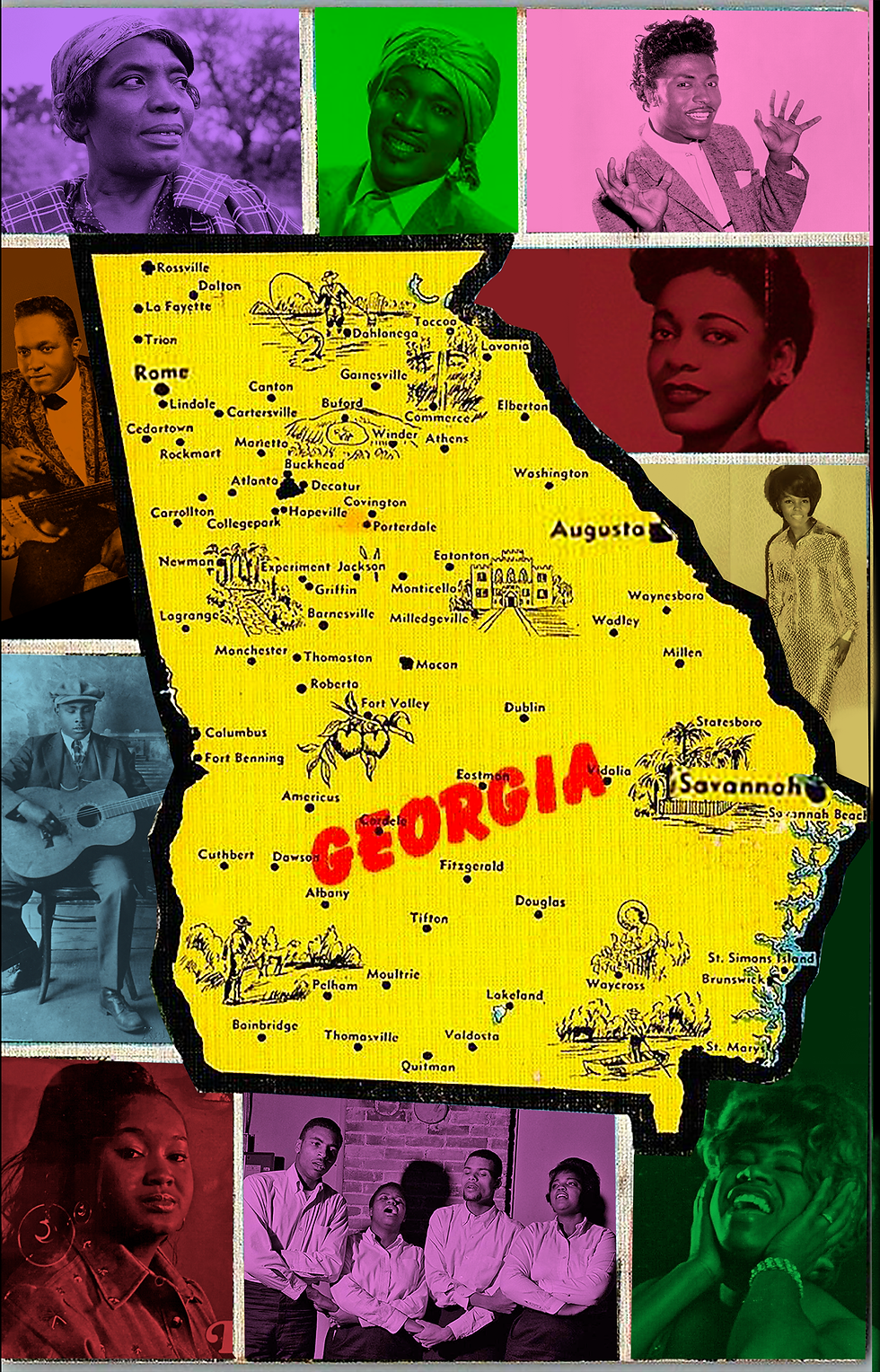Travlin' the Tracks to Georgia on KMHD
- DJ Action Slacks

- Jun 25, 2020
- 4 min read
Hello Friends!
As we continue to navigate our way through epic, historic times, I thought I'd drop you a line to check in.
As I'm sure you know, it remains to be seen when (or if) I'll be able to throw a dance party like the ones I produced for the 9 years leading up to the pandemic. I really miss seeing your faces in person and finding joy with you on the dance floor. Most especially, I miss the community we were able to build together over this past decade.
I do hope to entertain you in person somewhere down the line (hopefully sooner than later) even if it's just simply spinning records while you enjoy a beverage or two in the outdoors. Of course, all of that is dependent on circumstances out of my control.
In the meantime, I continue attempting to "meet the moment" through radio, trying to deliver relevant programming containing songs to soothe, uplift, and inform while also sprinkling in historical context relevant to the events we see unfolding today.
Travel down the dial tonight and every Thursday evening! 89.1 fm in Portland 7 - 9 pm (PST) Stream it live at kmhd.org (9 pm Central, 10 pm Eastern) Right now we're experiencing and witnessing an awakening in America - a long overdue willingness of many white people to confront the country's deeply entrenched white supremacy. While the massive disenfranchisement of Black voters of Georgia and the high-profile murder of Rayshard Brooks are fresh in our minds, I thought it would be beneficial to get some regional cultural context by spending a couple of hours immersed in vintage and historic Black music of Georgia.

pictured here clockwise - Bessie Jones, Chuck Willis, Little Richard, Vickie Anderson, Irene Reid, The Freedom Singers, Doris Duke, Blind Willie McTell, Albert Washington,
Quite often when I put a radio show together, I want to provide a lot more information in my announcing than I can fit into a two minute announcing break. So for this week's show, I'd like to provide a little more context in writing.
On January 19, 1861 Georgia seceded from the Union, declaring its commitment to slavery and white supremacy.
To this day, the most visited tourist attraction in the state of Georgia is Stone Mountain, a monument to Confederate leaders Jefferson Davis, Robert E. Lee and Stonewall Jackson. The monument was completed as an official state project in the early 1960s in reaction to efforts to desegregate the South. The site is also attached to the Klan. So, in many ways it's unsurprising that Georgia has been the setting of some of the biggest showdowns over systemic racism in recent years.
Our musical journey will delve into Georgia's musical roots which reflect the history of the state and Black Georgians' struggle against racial subjugation and tyranny.
On this episode you'll hear the following:
- Mid-century renditions of spirituals originally sung by enslaved plantation workers, and folk songs of post-Civil War enslaved prisoners.
- Examples of Piedmont blues, a style of country-blues developed in post-Civil War Northern GA (and other states of the Piedmont Plateau Region).
- Civil Rights Era gospel and protest/message music that emerged during the height of influence of Atlanta's most celebrated Civil Rights leader, Dr Martin Luther King Jr.
- Mid-century R&B and roots rock 'n' roll which reflects the rebellious energy of post-WW2 Black America at birth the mid-century Civil Rights Movement.
A few months ago on my show I talked about the WWII movement within the Black community urging Black men to sign up to fight the war. The thought being that contributing to the war would earn Black Americans respect and erase institutionalized racism.
As we know, that result did not occur. Black soldiers returned to America after fighting Nazism, only to suffer the same racist attacks, lynchings, and continued subjugation. (not to mention the Tuskegee experiment)
- Late 1960s deep southern soul ballads, which are steeped in the divine passion of southern Black gospel combined with the earthy qualities of southern country blues.
- A set focusing on musicians linked to Macon, GA. Macon is located one hour south of Atlanta (by car) and began flourishing in the mid-1800s as a railroad hub for the state of Georgia, becoming particularly crucial to the Confederacy during the Civil War.
During the 1950s and 1960s Macon became fertile ground for r&b and soul music, producing legends like Little Richard, James Brown, and Otis Redding. Today Macon is a predominantly Black city (nearly 68% of the population).
- Funky Atlanta & Augusta - during the late 1960s and the early 1970s some of the funkiest dance records in the country were recorded in Atlanta & Augusta, laying the foundation for some of the contemporary grooves to come out of the region during the 1990s through today (Outkast, TLC, Ludacris, Usher, Janelle Monáe, etc)
All that and more tonight on Travlin' the Tracks! I hope you'll join me!

I have long believed this country will never experience peace until it confronts its crimes against humanity, and takes real steps to live up to its ideals.
I'm in favor of REPARATIONS paid to Black Americans and Indigenous people. It's one step towards addressing the devastation caused by the colonization of this land, the stolen lives and labor used to build this nation, and the continuation of institutionalized racism.
Please read more about reparations and join me in pushing for restitution and reconciliation.




Comments